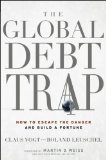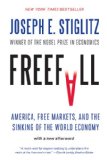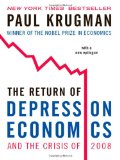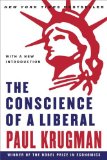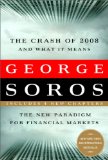Stocks priced in the Republican takeover in the House in the midterm elections. In the meantime, the results are nearly final.
In the light of the overreaching economic policies by team Obama, the sweeping losses of the Democrats and the stunning tsunami wave of the “dynamic duo” of TEA/GOP were clearly to be expected (if not long overdue). Whichever party warms their seats for too long at a time tends to get accustomed to the perks and corrupted by power. Unlike in 1994, this time around voters exercised restraint by rejecting some extremists in the Senate.
Why the Obama Stimulus Did Not Live Up To Its Economic Potential
Reverse Keynesianism (Or How to Bribe the Voter Base)
On the Upside: We Will Not Become A Second Europe
The Midterms in Numbers
In the House, the Republicans gained a record 60 seats (with 11 seats still undecided). This gives the GOP 239 seats. That’s 21 above the majority threshold of 218. House Democrats had to accept a humbling defeat. They lost the gavel and 60 seats in the House (as of today). They will have to make do with just 185 votes.
The outcome in the Senate looks slightly better for the Democrats. Thanks to the victory of the Majority Leader, Senator Harry Reid (D-NV) and Senator Barbara Boxer (D-CA), the Democrats managed to hold on to their slim majority, albeit a razor-thin one. A majority of 52 Democratic seats in the Senate puts them barely above the threshold of 50. It is a majority only on paper. Anything less than 60 is not filibuster-proof.
Bi-Partisan Bickering Resumes
President Obama pledged to work with the Republicans, but why should they want to work with him now? Paying lip service to bipartisanship has no practical implications. It certainly simplifies the blame-game if you can pin failures on the “ruling” party. President Obama will face the choice between rejecting GOP bills–which have a free pass at least in the GOP-controlled House–only to be seen as an obstructionist. Or he can sign them into law and be seen as though he betrayed his Democratic base.
The GOP is in a far more comfortable position. The sweeping tidal wave of the midterms can be portrayed as a clear mandate to govern. The GOP will certainly pursue its vision of a much smaller government with lower spending. Whether they will retaliate by cutting Democratic pet causes or attempt a lasting reform remains to be seen.
On the economic front, the Republicans believe in Reagonomics, trickle-down-economics, and supply-side economics. They subscribe to tax cuts the main instrument of stimulating the economy.
Democrats used to have a clear agenda during the Bill Clinton years. Clinton enacted his own edition of Keynesian economics, championed today by the likes of Paul Krugman (the 2008 sole Nobel Price winner in Economic Sciences) and Joseph Stiglitz (a 2001 Nobel Price winner in Economic Sciences), but not by the current White House.
Why the Obama Stimulus Did Not Live Up To Its Economic Potential
John M. Keynes’ Depression-era General Theory of Employment, Interest and Money was aligned with the policies of the New Deal and delivered results, but is largely misunderstood today. It is not about big government mindlessly going on a spending spree with borrowed money. Keynes actually suggested that the government should run a surplus in good times to pay off the debt acquired in bad times. He also suggested the government should borrow and redistribute money in bad times to stimulate the economy by increasing aggregate demand. It should channel the spending through the hands of consumers who have the highest propensity to spend so that they actually do spend and prop up demand in the process.
Instead, we have been doing the exact opposite. We let the government borrow and wastefully spend on our behalf in fairly good economic times only to begin exercising demand-killing austerity in hard times. We let the government borrow and spend a mind-boggling amount of stimulus money on all things not “Keynesian” such as, ultimately, bank(st)er’s bonuses. As a result, banks don’t lend and consumers don’t spend.
We didn’t follow the Keynesian model but we like to criticize it for “not working”.
Reverse Keynesianism (Or How to Bribe the Voters)
We didn’t follow the Keynesian model, but honestly, we have yet to find a country which did. Not that it is not politically viable (exhibit A: the Clinton presidency).
Applying Keynesian theory in the good years and in bad would have worked so much better, but obviously that ship has sailed.
Instead, we squandered borrowed money on supposedly patriotic but rather pointless wars overseas. Some liberal Democrats argue (privately) that the most patriotic course of action would have been saving thousands of American lives and investing in the education of the next generation of Americans.
It would have been the right thing to do, but it’s such a hard sell. Instead many of us Americans were sold on the rather crude and simple ideas of G.W.Bush to save the (f)ailing economy through tax cuts. But the biggest expense of all are the costly wars we are fighting overseas. Obama has thankfully very much scaled down our engagement in Iraq, but it is still ongoing and draining our budget. On top of that, we kicked into higher gear in the war in Afghanistan and can’t really avoid going after terrorists in the nearby Pakistan. So we have three wars now.
Most Americans who voted for then-Senator and now President Barack Obama had three wishes in mind:
1) fixing the economy by creating an economic green energy boom (just like Bill Clinton did it with the dot.com boom in the 90’s)
2) ending all wars overseas, not just merely shifting the war from Iraq to Afghanistan/Pakistan; for parents and families of our men and women in uniform it does not make much of a difference whether their loved ones die in Iraq or in Afghanistan, they just want them safely here back home
3) ensuring that the U.S.A. remains the economic super power number one
In the light of a continuing economic slump–well technically were are not in a recession because two percent growth already qualifies as recovery– Americans of all political stripes and almost all walks of life are rightly disappointed with the state of the Union.
Former President Bill Clinton fixed the economy first. He created a sustainable recovery and a swinging boom but had to sacrifice his health care reform.
President Obama succeeded in what no US President has ever done: he did pass a “comprehensive health care reform”. But without money to pay for it, it is just paper and if it is enforced it will become yet another burden on the ailing economy. So, President Obama entered history books at the speed of light not only as the first President to win the Nobel Peace Price in 2009, he was also the first to sign a sweeping health care reform and a Financial Regulation bill (a.k.a FinReg or Frank-Dodd-Bill). But is he doing the job we hired him to do? You have to wonder whether ending the wars and restoring American economic greatness is anywhere on his agenda right now.
Many political analysts argue that the Nobel Price so early in his Presidency was more of a decisive vote against G.W. Bush then a vote in favor of Obama. Even so, the Nobel Price didn’t make Middle East negotiations between Israel and Palestine any easier. We can only hope for peace in this difficult conflict regardless.
One thing is for sure, a health care reform which covers an additional 30 millions of Americans is certainly laudable even though in its current form it is an economic suicide. Former President Bill Clinton managed to pull off an economic recovery (made possible by the dot com boom) because he put it first, ahead of everything else. President Barack Obama hired his economic team and then pretty much left it up to them while he himself hurried to do too much in too little time on other fronts.
First Things First
Pay-as-you-go was one of the pillars of Bill Clinton’s economic policies. Picking the very same economic advisors as Bill Clinton did has two downsides: it doesn’t qualify as change (unless you compare it to former President Bush’s team) and it creates fertile ground for unfavorable comparisons.
Hammering the Clintons on lack of judgment was a short-lived popularity stunt. It would have worked if the one who claimed superior judgement had actually succeeded in re-starting the economic engine. Nearly 10% unemployment is certainly not what voters expected.
And what about the Stimulus Bill (and Bush’s tax cuts)? Well, for starters, tax cuts are quite pointless so long as people are unemployed. There is nothing to cut for jobless Americans! Is there?
Obama’s stimulus bill wasn’t such a bad idea in general, but the practical implementation was “above his pay grade” as even many Democrats argue behind closed doors.
Saving the banks and preventing the Great Recession from turning into Great Depression 2.0 was no doubt the right course of action, but–now comes the caveat–most of the money went straight to the banks without any requirements to lend it. The upside was the banks were able to pay TARP loans back quickly with interest, but the downside was that banks don’t lend right now and won’t lend in the foreseeable future. This defies the very idea of the Stimulus Bill.
Keynesians point out that in order to get “the biggest bang for the buck” (in Obama speak) requires that the money flows to those consumers who have the highest propensity to spend (which is another way of saying that people with low income have no choice but to spend nearly all the money which goes through their hands; there is obviously no way around paying for these people and address their basic needs like shelter and food to avoid a spike in crime).
The biggest returns–or shall we say in Obama speak “the biggest bang for the buck”–delivered programs such as “Cash for Clunkers” and the Federal Housing Tax Credit ($8,000 for first-time home buyers).
If most of the $767 Billion of stimulus spending had gone through the hands of the middle class instead of filling bank vaults and gathering dust there, the very same amount of stimulus would have created a sustainable recovery. But instead, we went the route of saving the banks and nobody but the banks.
On The Upside: We Will Not Become A Second Europe
As President Barack Obama’s economic policy is turning into an utter failure and disintegrating as we speak, we are about to swiftly shift–under the leadership of the GOP–from a bad economic policy to a worse one: austerity. Harsh austerity is a misguided idea of the Austrian School of Economics, widely practiced in Europe under Germany’s “leadership”. It didn’t work in over-regulated and over-taxed Europe, why should it work here in the USA? It won’t.
But political gridlock may actually turn out to be a good thing.
High taxes in Europe and the U.K. did not result in more economic prosperity but to two dreaded B-words: “barter & bribery”. In this environment, deals are made behind closed doors where money does not change hands and favors are “tax-free”. In the UK, Belgium, France, Germany and Scandinavia up to one in four individuals in the workforce either don’t work at all or they only work as little as possible in order to still qualify for government hand-outs. And the few businesses which still thrive pay a flat wage of 400 Euros per month. This is about 565 US Dollars per month. Many bigger corporations abuse students as low-cost labor because they can employ them without social security contributions and with minimal contributions to the health care system. They only have to fire them before they acquire protection after a two year employment. Barter deals among befriended corporations are widespread as a means of dodging high taxes. They range from swapping ads in a print magazine in exchange for services to sophisticated accounting gimmicks.
VAT tax rates in Europe were initially introduced at a seemingly harmless rate of slightly above 10 percent. Give the government a finger and it will take the whole hand and ask for the leg. VAT tax rates have been hiked across Europe many times over the years. Now a VAT tax between 20 and 25% is no exception.
Some countries such as Poland adopted mechanisms for fully automated VAT tax increases which are triggered whenever the deficit exceeds a predefined quota. This ensures that no one has the slightest incentive to make any corrections. And only few people have any incentive to work.
The Austrian School of Economics, peppered with a lot of red tape straight out of Brussels, is a toxic cocktail which made Europe the laughing stock of developed countries.
Between 40% and 50% of the budget of the European Union is earmarked as government subsidies for agriculture, but only one in four Euros trickle all the way through to the actual farmers. But even so, this is a lot of money given that farmers constitute only a mere 3% of the population. What happens with the remainder of agricultural subsidies? The rest of the subsidies is swallowed by red tape and other inefficiencies. E.U.’s disastrous CAP policy (Common Agricultural Policy) has given China a head-start as an economic powerhouse. Only recently did European nations decide to pull the plug on subsidies for China. (This is not a typo. The Europeans used to subsidize the growth of China through direct donations.)
So all in all, the midterms may well prove to have been worth the hassle of casting a vote, even though voters clearly took chances with some more radical newcomers to the House and the Senate. If by doing so we averted a VAT tax and prevented the country we love from becoming a second Europe, then it was certainly worth it.
Please comment below.
